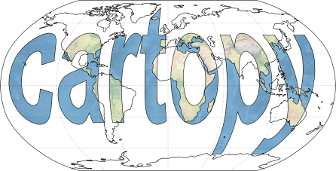
Welcome to this collection of articles, how-tos and announcements.
As a scientific technical lead at a leading natural sciences research institute, I'm fortunate to contribute to a body of tools that empower researchers and data scientists across a broad spectrum of fields.
I'm driven by the idea that the modern scientific method is now almost entirely dependent upon software, and that, in order to facilitate transparency and reproducibility of results, scientific software must increasingly become open source.
As well as deep knowledge of the rapidly changing technology landscape, development of useful scientific tools depends upon a solid understanding of the underlying scientific problem space. For these reasons you will find these pages cover the broad spectrum of topics from technology through to scientific.
Open source tools that I have made significant contributions towards include:
Role:Member of steering-committee
Still the go-to visualisation Python package, matplotlib is a cross-platform 2D plotting library which produces publication quality figures in a variety of hard copy and interactive formats.
Role:Creator
A Python package for geospatial data visualisation with a powerful matplotlib interface.
Role:Creator
A community led collection of recipes, build infrastructure and distributions for the conda package manager.
Role:Creator
Measure the health of your favourite GitHub repositories with repohealth.info. Provides metrics and visualisations that may be used for assessing the state of repositories over time.
Role:Co-creator
A powerful, easy to use Python package for analysing and visualising [predominantly] gridded datasets seen commonly in the atmospheric sciences.
Role:Creator
Write scripts that express their dependencies, and execute them in isolated temporary (conda) environments.
Other packages of note include Jupyter (notebook & IPython itself), Shapely, conda-build-all and biggus. My full GitHub profile can be found at github.com/pelson.
Content for this site has been organised into the following categories:
Articles
White-papers, prose and refined field notes.
Announcements
Synopsis of new packages, releases and the occasional twitter feed.
Hints & Tips
Titbits of information, often as much as a reminder for myself as anybody else.
Field notes
An unrefined log of technology/science investigations. With sufficient interest, occasionally notes are polished and turned into articles.
Articles can also be found based on their tag:




